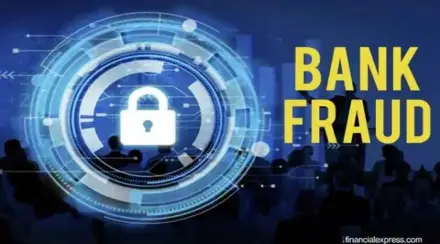
Varanasi, August 2025 — In yet another reminder of how cybercriminals are becoming more daring and inventive, two men from Gwalior, Madhya Pradesh, were arrested for impersonating Central Bureau of Investigation (CBI) officers and attempting to extort nearly ₹49.40 lakh from a resident of Shivaji Nagar, Mahmoorganj, in Varanasi.
The accused, identified as Abhilash Srivastava and Sameer Rana, were caught by the Varanasi Cyber Cell after a swift probe. The case highlights not only the growing menace of impersonation fraud but also the effectiveness of coordinated cybercrime investigations that span multiple states.
The Incident: Fear as a Weapon
The ordeal began when the victim, whose identity has been withheld for security reasons, received a call from individuals claiming to be senior CBI officers. The fraudsters accused him of being involved in illegal activities and warned that a warrant for his “digital arrest” had already been issued.
CBI Officers The term “digital arrest”—completely fictional—has been increasingly used by scammers to trick victims into believing that authorities can detain them online, freeze their accounts, and ruin their reputation unless they comply with demands. The fear of legal entanglement is often enough to push people into transferring large sums of money without cross-verifying the claims.
In this case, the victim, rattled by the threats and the fake authority the men projected, ended up transferring nearly ₹49.40 lakh before realizing he had been duped. On May 11, he lodged a complaint with the Varanasi Cyber Cell, which immediately launched a probe.

The Investigation and Arrest
Acting on digital footprints, the cyber sleuths traced the IP addresses and financial trails linked to the fraudulent transactions. This led them to Gwalior, Madhya Pradesh, where the duo was eventually arrested.
According to officials, the accused had created a network of fake caller IDs, WhatsApp accounts, and spoofed phone numbers that displayed the CBI’s official insignia to make their act more convincing. “They went to great lengths to appear authentic,” said a senior police officer associated with the investigation. “From using official-sounding language to threatening legal action, their modus operandi was to instill fear and extract money quickly before the victim could reach out for help.”
Both accused are now in judicial custody and face charges under the Information Technology Act and sections of the Indian Penal Code related to cheating, extortion, and impersonation.
A Rising Pattern: The “Digital Arrest” Scam
This is not an isolated case. Over the past two years, India has seen a sharp rise in scams where criminals pose as CBI, ED (Enforcement Directorate), or police officers, threatening victims with non-existent warrants.
The National Crime Records Bureau (NCRB) has reported a 268% increase in impersonation-related cyber frauds between 2019 and 2024. The common thread in these cases is psychological manipulation: criminals exploit the fear of authority.
Victims are often told that their bank accounts are linked to money laundering or drug trafficking.
Some receive doctored video calls showing fake police backdrops.
Others are forced to stay on calls for hours—cut off from family or friends—while they are pressured into transferring money.
The scam has been dubbed “digital arrest” because it gives the illusion of custody without physical detention.
Why People Fall for It
Cyber experts point out that these scams succeed because they weaponize fear and urgency. Ordinary citizens, especially senior citizens and middle-class professionals, are often overwhelmed by the thought of being entangled in a legal case.
“Most people don’t pause to question whether such a thing as ‘digital arrest’ even exists,” says a cybercrime analyst. 1 .“The fraudsters are persuasive, they quote laws, and they sound professional. Victims panic and transfer money just to make the problem disappear.”
Police Response and Larger Implications
The swift action by the Varanasi Cyber Cell shows how critical inter-state coordination has become in tackling such crimes. 2 .Criminals rarely operate in the same state as their victims; they use digital tools to erase footprints, move money across wallets, and hide behind spoofed numbers.
3 .To counter this, the Ministry of Home Affairs has been strengthening the 1930 National Cyber Helpline and the Indian Cyber Crime Coordination Centre (I4C). Quick reporting is the only way to stop money from being siphoned into mule accounts.
In this case, although a large portion of money had already been transferred, timely intervention helped authorities trace the suspects and recover a part of the funds.
Preventive Measures: What Citizens Should Know
This case underlines a crucial lesson: real law enforcement agencies never demand money over calls or WhatsApp chats. Citizens should follow a few golden rules:
Verify Calls: If someone claims to be from the CBI, ED, or police, hang up and call the official helpline number directly.
No “Digital Arrest” Exists: Arrests are physical and must be backed by documented legal processes. There is no online equivalent.
4 .Report Immediately: Dial 1930 or file a complaint on cybercrime.gov.in
at the first sign of suspicious activity.
Don’t Transfer Money in Panic: Fraudsters thrive on urgency. Take a pause, consult with family, or approach local police.
Stay Updated: Awareness drives, especially for elderly citizens, can prevent them from falling prey to scams.
Voices from the Ground
Victims of such scams often remain silent due to embarrassment. But officials stress that reporting is essential. “Cybercrime is not just about money lost, it’s about trust lost,” said a senior police officer in Varanasi. “By coming forward, victims not only help themselves but also help us catch culprits who may be targeting dozens more.”
A resident of Varanasi who narrowly escaped a similar scam shared: “I received a call from someone claiming to be an ED officer. They said my Aadhaar was linked to a crime. Luckily, my nephew checked online and told me it was fake. Otherwise, I might have lost my savings.”


